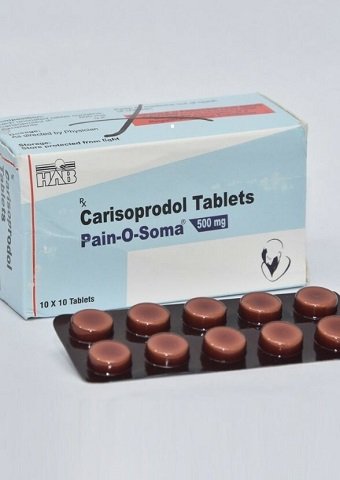Pain Relief for Dental Pain: Home Remedies and Professional Treatments
June 24, 2024 | by Freya Parker

Dental pain can be an excruciating experience that disrupts daily life. From a mild toothache to severe dental emergencies, managing this pain effectively is crucial. This article explores a comprehensive range of home remedies and professional treatments to alleviate dental pain, providing relief and promoting oral health.
Understanding Dental Pain
Dental pain arises from various conditions, such as tooth decay, gum disease, dental abscesses, tooth fractures, or exposed tooth roots. The pain can range from a dull, persistent ache to sharp, shooting pains. Understanding the root cause is essential for choosing the appropriate treatment.
Home Remedies for Dental Pain
Home remedies can offer temporary relief from dental pain and are often the first line of defense before professional treatment becomes available. Here are some effective home remedies:
1. Saltwater Rinse
A saltwater rinse is a simple and effective remedy. Saltwater acts as a natural disinfectant and can reduce inflammation. To prepare:
- Mix 1/2 teaspoon of salt in a glass of warm water.
- Rinse your mouth with the solution for 30 seconds.
- Repeat 2-3 times daily.
2. Cold Compress
Applying a cold compress can numb the pain and reduce swelling. Here’s how to use it:
- Wrap a few ice cubes in a cloth or use a cold pack.
- Apply to the affected area for 15-20 minutes.
- Repeat every few hours.
3. Clove Oil
Clove oil contains eugenol, a natural anesthetic with anti-inflammatory properties. To use:
- Dab a small amount of clove oil on a cotton ball.
- Apply directly to the sore tooth or gum area.
- Avoid swallowing the oil.
4. Garlic
Garlic has antibacterial properties that can help combat infection. To use:
- Crush a garlic clove to form a paste.
- Apply the paste to the affected area.
- Leave for a few minutes, then rinse with warm water.
5. Peppermint Tea Bags
Peppermint has mild numbing properties and can soothe sensitive gums. To use:
- Steep a peppermint tea bag in hot water for a few minutes.
- Let it cool to a comfortable temperature.
- Apply the tea bag to the affected area for 15-20 minutes.
6. Hydrogen Peroxide Rinse
A hydrogen peroxide rinse can help kill bacteria and reduce plaque. To use:
- Mix equal parts of 3% hydrogen peroxide and water.
- Swish the solution in your mouth for 30 seconds.
- Spit out and rinse your mouth with water.
7. Vanilla Extract
Vanilla extract contains alcohol, which can numb pain. To use:
- Dab a small amount of vanilla extract on a cotton ball.
- Apply to the affected area for a few minutes.
Over-the-Counter Pain Relief
For more persistent pain, over-the-counter medications can provide relief. Common options include:
1. Ibuprofen
Ibuprofen is an anti-inflammatory drug that reduces pain and swelling. Follow the dosage instructions on the packaging and avoid exceeding the recommended amount.
2. Acetaminophen
Acetaminophen is another effective pain reliever but does not have anti-inflammatory properties. It’s a good option if you cannot take ibuprofen.
3. Oral Gels
Topical oral gels containing benzocaine can provide temporary numbness. Apply the gel directly to the affected area following the product instructions.
Professional Treatments for Dental Pain
While home remedies and over-the-counter medications can offer temporary relief, professional treatment is often necessary for long-term solutions. Here are some professional treatments for dental pain:
1. Dental Fillings
Cavities caused by tooth decay are a common source of dental pain. Dentists treat cavities by removing the decayed portion of the tooth and filling it with a dental filling material. This restores the tooth’s structure and function, alleviating pain.
2. Root Canal Therapy
When tooth decay reaches the pulp (the innermost part of the tooth containing nerves and blood vessels), it can cause severe pain. Root canal therapy involves removing the infected pulp, cleaning and disinfecting the inside of the tooth, and sealing it with a filling or crown. This procedure saves the tooth and eliminates pain.
3. Tooth Extraction
If a tooth is severely damaged or decayed beyond repair, extraction may be necessary. Removing the affected tooth can provide immediate relief from pain and prevent the spread of infection.
4. Gum Disease Treatment
Gum disease (periodontal disease) can cause significant dental pain and discomfort. Professional treatment options include:
- Scaling and Root Planing: Deep cleaning to remove plaque and tartar buildup below the gumline.
- Antibiotics: To treat bacterial infections associated with gum disease.
- Surgery: In advanced cases, surgical procedures such as flap surgery or bone grafts may be required.
5. Dental Crowns
Dental crowns are used to restore teeth that are cracked, broken, or have large fillings. A crown covers the entire tooth, providing strength and protection while alleviating pain.
6. Orthodontic Treatment
Misaligned teeth or bite issues can cause dental pain and discomfort. Orthodontic treatments, such as braces or clear aligners, can correct these issues, improving dental function and reducing pain.
Preventing Dental Pain
Preventing dental pain involves maintaining good oral hygiene and seeking regular dental care. Here are some tips to keep your teeth and gums healthy:
1. Brush and Floss Regularly
Brush your teeth at least twice a day and floss daily to remove plaque and prevent tooth decay and gum disease.
2. Use Fluoride
Fluoride strengthens tooth enamel and helps prevent cavities. Use fluoride toothpaste and consider fluoride treatments from your dentist.
3. Avoid Sugary Foods and Drinks
Sugary foods and drinks contribute to tooth decay. Limit their consumption and rinse your mouth with water after consuming them.
4. Wear a Mouthguard
If you play contact sports or grind your teeth at night, wear a mouthguard to protect your teeth from injury.
5. Regular Dental Check-ups
Visit your dentist regularly for check-ups and cleanings. Early detection and treatment of dental issues can prevent pain and more serious problems.
When to See a Dentist
While home remedies and over-the-counter medications can provide temporary relief, it’s important to see a dentist if:
- The pain persists for more than a couple of days.
- The pain is severe or worsening.
- You have a fever, swelling, or pus around the affected area.
- You have difficulty breathing or swallowing.
Prompt dental care can prevent complications and ensure effective treatment for the underlying cause of dental pain.
Conclusion
Dental pain can be a disruptive and distressing experience, but there are many effective home remedies and professional treatments available. Simple remedies like saltwater rinses, cold compresses, and clove oil can provide temporary relief, while over-the-counter medications can manage more persistent pain. For long-term solutions, professional dental treatments such as fillings, root canals, and gum disease treatment are essential.
RELATED POSTS
View all


